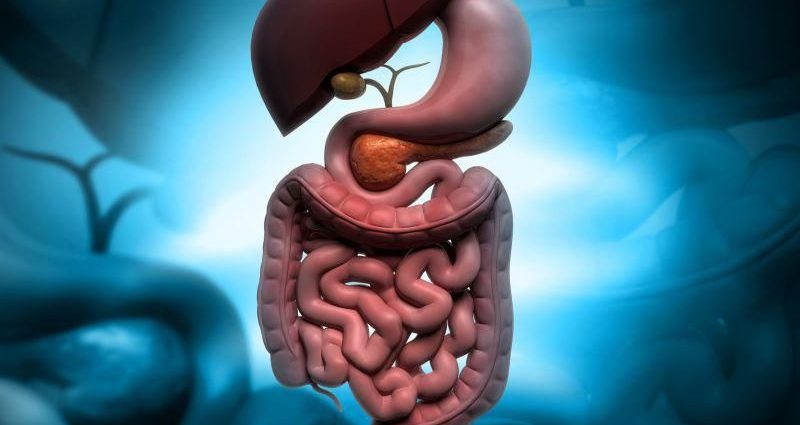FRIDAY, Jan. 20, 2023 (HealthDay News) — A probiotic supplement appears to clear the body of a type of bacteria that can cause serious antibiotic-resistant infections, a new study finds.
More research is needed, but experts said the work could lead to a way to prevent infections with the bacteria, called Staphylococcus aureus.
S. aureus usually causes skin infections, but can also lead to serious, potentially fatal disease if it gets into the bloodstream. Particularly worrisome are methicillin-resistant S. aureus (MRSA) strains — so-called “superbugs” that resist many of the antibiotics used to treat staph infections.
Given that, researchers have sought ways to prevent staph infections in the first place.
The human body naturally harbors S. aureus, with the nose and skin being two hot spots. So researchers have tried using topical antibiotics or antiseptics to wipe out staph in those body areas, in certain higher-risk situations — such as when people are hospitalized or undergoing kidney dialysis.
But success has been limited, said Michael Otto, a senior investigator with the U.S. National Institute of Allergy and Infectious Diseases.
He pointed to what’s believed to be a key obstacle: The gut is an even bigger “reservoir” for S. aureus, and it quickly replenishes the supply that is depleted in the nose or skin.
That’s a formidable problem, because there has been no safe way to specifically target S. aureus in the gut.
“It’s simply not possible using oral antibiotics,” Otto said. That, he explained, would indiscriminately knock out the “good” bacteria that normally live in the gut and support vital bodily functions.
For the new study, Otto and his colleagues tried a different tactic: a probiotic called Bacillus subtilis. They chose that bacteria based, in part, on a curious finding from a 2018 study: People who had Bacillus in their stool never harbored S. aureus in their bodies.
Not everyone carries a permanent “colony” of S. aureus, Otto explained. Research suggests that about one-third of the population does, for reasons that are unclear.
But carrying Bacillus might be one protective factor. In their earlier work, Otto’s team also found that most types of Bacillus, including most B. subtilis strains, secrete substances that specifically inhibit S. aureus from gaining a foothold in the body.
It all raised the possibility that Bacillus could be used to selectively deplete S. aureus while leaving other gut bacteria alone.
The current study involved 115 healthy adults from Thailand whose nasal and stool samples indicated they were permanent carriers of S. aureus. They were randomly assigned to take either the B. subtilis supplement or placebo capsules every day for 30 days.
In the end, the study found, the probiotic nearly wiped out S. aureus in the gut, reducing the amount in participants’ stool samples by 97%, on average. It also cut levels of the bacteria in nasal samples by two-thirds.
Just as important, Otto’s team found, there were no signs the probiotic had harmful effects on the gut’s normal bacterial makeup.
The findings were recently published in the journal Lancet Microbe.
An infectious disease specialist who was not involved in the trial called the findings “very interesting.”
However, more research is needed to see whether the probiotic is safe and effective for long-term use — and whether it actually does prevent staph infections, said Dr. Aaron Glatt, a spokesman for the Infectious Diseases Society of America.
At this point, he said, no one should be running to the health food store to stock up on Bacillus. For one, supplements are not regulated like drugs are, and there’s no guarantee of what you are buying, said Glatt, who is also chief of infectious diseases at Mount Sinai South Nassau in Oceanside, N.Y.
Beyond that, most people would have little need to take a probiotic just to clear out any S. aureus roaming the body.
Otto said the potential application would be in preventing S. aureus infections in certain higher-risk people — such as those who’ve had recurrent infections in the past, or patients on kidney dialysis.
The probiotic does not actually “kill” S. aureus, Otto noted, but instead inhibits its ability to set up a colony. So it would not treat an established staph infection.
Why do some people carry a healthy supply of Bacillus? It’s not entirely clear, but Otto noted that the 2018 study was also conducted in rural Thailand, where many people may have ingested the bacteria from plant foods that were not washed. (Bacillus is abundant in soil.)
But Otto said he would not advocate eating unwashed fruits and vegetables in the hopes of loading up on Bacillus.
More information
The U.S. Centers for Disease Control and Prevention has more on staph infections.
SOURCES: Michael Otto, PhD, senior investigator, Laboratory of Bacteriology, U.S. National Institute of Allergy and Infectious Diseases, Bethesda, Md.; Aaron Glatt, MD, chief, infectious diseases and hospital epidemiologist, Mount Sinai South Nassau, Oceanside, N.Y., and professor, medicine, Icahn School of Medicine at Mount Sinai, New York City; Lancet Microbe, Jan. 13, 2023, online
Copyright © 2024 HealthDay. All rights reserved.

